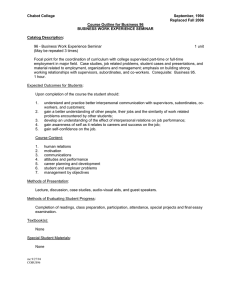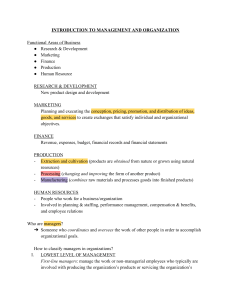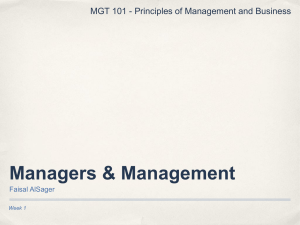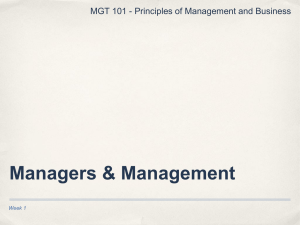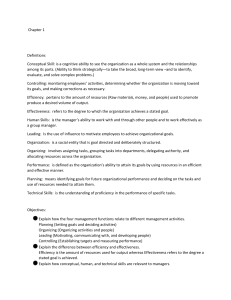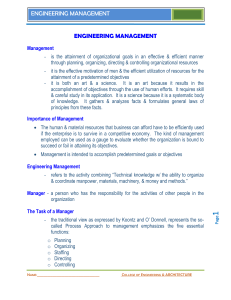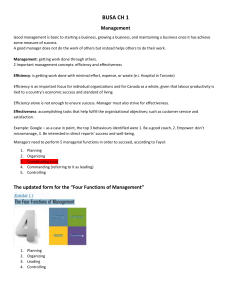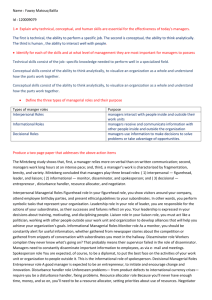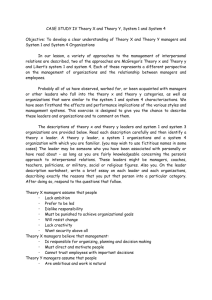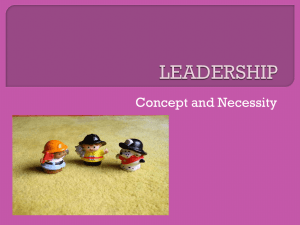HANDOUT Roles of management
advertisement
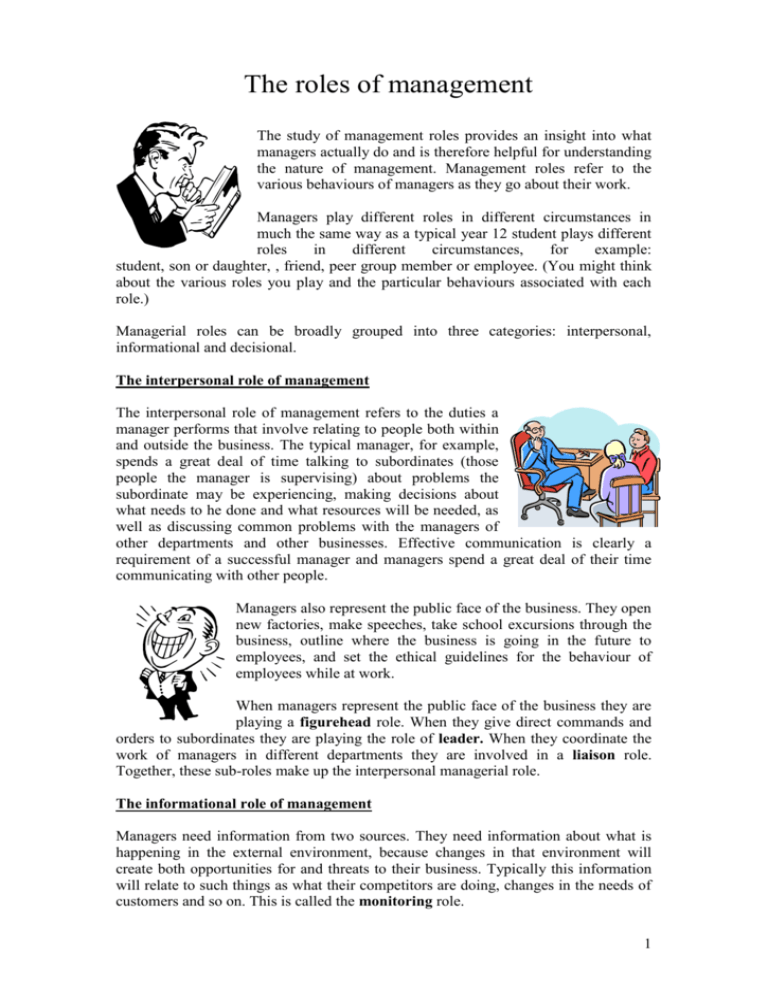
The roles of management The study of management roles provides an insight into what managers actually do and is therefore helpful for understanding the nature of management. Management roles refer to the various behaviours of managers as they go about their work. Managers play different roles in different circumstances in much the same way as a typical year 12 student plays different roles in different circumstances, for example: student, son or daughter, , friend, peer group member or employee. (You might think about the various roles you play and the particular behaviours associated with each role.) Managerial roles can be broadly grouped into three categories: interpersonal, informational and decisional. The interpersonal role of management The interpersonal role of management refers to the duties a manager performs that involve relating to people both within and outside the business. The typical manager, for example, spends a great deal of time talking to subordinates (those people the manager is supervising) about problems the subordinate may be experiencing, making decisions about what needs to he done and what resources will be needed, as well as discussing common problems with the managers of other departments and other businesses. Effective communication is clearly a requirement of a successful manager and managers spend a great deal of their time communicating with other people. Managers also represent the public face of the business. They open new factories, make speeches, take school excursions through the business, outline where the business is going in the future to employees, and set the ethical guidelines for the behaviour of employees while at work. When managers represent the public face of the business they are playing a figurehead role. When they give direct commands and orders to subordinates they are playing the role of leader. When they coordinate the work of managers in different departments they are involved in a liaison role. Together, these sub-roles make up the interpersonal managerial role. The informational role of management Managers need information from two sources. They need information about what is happening in the external environment, because changes in that environment will create both opportunities for and threats to their business. Typically this information will relate to such things as what their competitors are doing, changes in the needs of customers and so on. This is called the monitoring role. 1 They also need information about what is actually happening within their business so that they can determine whether or not their plans are working. All managers tend to have informational roles involving receiving, collecting and disseminating information. When managers are involved in telling other people in the business about information they have collected it is called the disseminator role. Sometimes managers have to inform the general public. They may do this by having press conferences to launch new products or explain the future goals of the business or explain the business’s policies on things like ethics and the environment. This is called the spokesperson role. The decisional role of management Managers also play roles where they are required to make choices. This involves decision-making. Managers act as the entrepreneurs in a business. This entrepreneurial role of managers is concerned with initiating such things as new projects to develop and market new products. The manager will then allocate the necessary financial resources for the people and machinery required. Another situation where managers will be required to make decisions is when there are problems facing the business from the internal and external environment. An example of an internal problem would be a major strike by the business’s workforce. An example of a major problem from the external environment was the contaminated aviation fuel distributed by Mobil in late 1999 and early 2000. Large numbers of Mobil’s customers were unable to continue their own businesses and demanded compensation from Mobil. In this situation, managers are playing the role of disturbance handlers. They must take corrective action to solve unforeseen problems. Managers also make decisions as resource allocators. It is the role of the manager to allocate the human resources, machinery and plant, and monetary resources in the business. They will, for example, set the budgets for all the departments in the business and determine the wages and salaries of all subordinates. Managers are also negotiators, They will negotiate agreements with other groups such as suppliers, unions representing their employees, and distributors. The purpose of the negotiations is to resolve conflict and ensure the business gains the advantage when they discuss and bargain with these groups. 2
